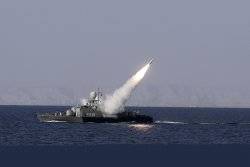European governments have agreed in principle to ban imports of Iranian oil, dealing a potentially heavy blow to Tehran that intensifies the bite of Western economic sanctions just months before an Iranian election.
The prospective embargo, announced by European Union diplomats on Wednesday, along with tough US financial measures signed into law by President Barack Obama on New Year's Eve, form a concerted Western campaign to impose sanctions over Iran's nuclear programme.
Iran says its nuclear programme is strictly peaceful, but Western countries say a November United Nations report shows it has sought to build an atomic bomb. Talks between Tehran and major powers broke down a year ago.
Diplomats said EU envoys had held talks on Iran in the last days of December, and that any objections to an oil embargo had been dropped, notably from crisis-hit Greece which gets one-third of its oil from Iran, relying on Tehran's lenient financing.
EU countries buy about 450,000 barrels per day (bpd) of Iran's 2.6 billion bpd in exports, making the bloc collectively the second largest market for Iranian crude after China.
Downplaying sanction
The news caused a spike rise in oil prices, with Brent crude peaking at nearly $114 a barrel in intraday trading, up nearly $2 from Tuesday's close.
Iran has warned that any steps to cut its oil exports could cause havoc in international oil markets at a time of global economic pain. In recent weeks, it has also resorted to increasingly aggressive military sabre-rattling.
Tehran threatened last month to shut the Strait of Hormuz, outlet to the Gulf through which 40 per cent of traded oil flows, and on Tuesday threatened to take unspecified action if a US aircraft carrier sails through the strait.
Western countries have imposed various sanctions on Iran for years with little impact but the latest measures are qualitatively different, directly targeting Iran's oil industry, which forms 60 per cent of its economy.
The embargo will force Iran to find other buyers for oil, but Tehran insisted it would have no trouble: "We could very easily replace these customers," said SM Qamsari, international director of the National Iranian Oil Company.
But the new US sanctions have already made it difficult for Iran to keep the customers it has, and could force it to offer steep discounts to countries willing to risk doing business with it, hurting its revenues.
Biggest trading partner China, driving a hard bargain, has cut its order of Iranian oil by more than half this month.
Economic hardship
Most traders expect Iran will still find buyers for its crude, mostly in Asia, but it is going to have to offer substantial discounts, cutting back the revenue that the state relies on to subsidies basic goods for its citizens.
Tougher sanctions appear to be having an impact already on Iran's streets, where prices for foodstuffs are soaring.
The rial currency has lost 40 per cent of its value against the dollar over the past month.
Currency exchanges have shut in Tehran and Iranians have queued to withdraw their savings from banks and buy dollars.
That economic hardship is being felt by the public two months before a parliamentary election, Iran's first since a disputed 2009 presidential vote that led to massive street demonstrations, put down violently by Iran's rulers.
Supply shock
Iran's leaders are anxious to prevent any popular unrest, especially after the Arab Spring revolts last year showed the vulnerability of Middle Eastern governments to street protest.
The EU diplomats said member countries had not yet agreed on how soon the embargo should take effect and were still debating other possible sanctions.
The new US financial sanctions, if imposed fully, would make it all but impossible for many refineries to pay for Iranian crude. The law grants Obama the power to issue temporary waivers to prevent shocks in energy markets.
A Turkish energy official said Ankara, which buys about 30 per cent of its oil from Iran, was seeking a waiver from Washington for its biggest refiner, Tupras.
Washington says it is discussing with its allies how to implement the measures without causing an oil supply shock.
PHOTO CAPTION
A new medium-range missile is fired from a naval ship during Velayat-90 war game on Sea of Oman near the Strait of Hormuz in southern Iran January 1, 2012.
Aljazeera


 Home
Home Discover Islam
Discover Islam Quran Recitations
Quran Recitations Lectures
Lectures
 Fatwa
Fatwa Articles
Articles Fiqh
Fiqh E-Books
E-Books Boys & Girls
Boys & Girls  Hajj Rulings
Hajj Rulings Hajj Fatwas
Hajj Fatwas














